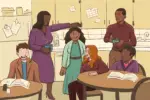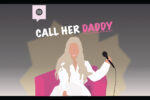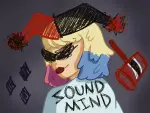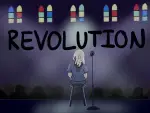With recent harassment allegations against comedians, actors and producers — anyone in the Hollywood sphere, basically — and the stream of problematic YouTubers, the fear may creep up on you that the comedy special or funny video you’re enjoying was in some way worked on by a creep. It’s great that survivors are coming forward, and if the high-profile individuals who are outed lose their fan bases because of their harmful actions, words and opinions, that’s an added bonus. For fans of comedy, though, it can be challenging to find content that good people made. That’s where the podcast and recent spin-off show, “My Brother, My Brother and Me,” by the McElroy brothers, comes in.
The podcast, a comedy “advice show for the modern era,” began in April 2010. Since then, “My Brother, My Brother and Me” has been going strong and is close to episode 400. Hosted by oldest brother, Justin McElroy, middle brother, Travis McElroy and “sweet baby brother,” Griffin McElroy, the show answers viewer questions, as well as some of the funnier queries on Yahoo Answers. The humor rarely comes at the cost of other people, and if listeners correct the brothers on something the brothers said that was wrong or potentially offensive, they are quick to learn and apologize.
Because their goal is to create positive jokes and inoffensive humor, the brothers are the biggest appeal of the podcast for a lot of listeners. While the McElroys’ laughs are contagious and their sibling dynamic relatable, the brothers are kind and genuine individuals. They make their mistakes, as people tend to do, but the McElroy brothers make an effort to apologize, educate themselves and educate their listeners and fans, often using Twitter as a platform to do so.
Most recently, Travis McElroy, the middle brother, tweeted an apology for a statement he made a few days prior, also on Twitter. Rather than delete the tweet containing his accidental use of a transmisogynistic phrase, he addressed his mistake, told his followers why it was wrong and apologized. While some would try using the old “It’s just a joke” excuse, Travis McElroy acknowledged that he was wrong and regretful. But this moral appears in more than one brother’s tweets.
In 2016, Justin McElroy, the oldest brother, made an apology tweet, but this time for something he said on the podcast. In “Episode 325: Cavemen Tears,” the brothers address a question by a viewer who doesn’t know if they should correct people who pronounce their name incorrectly or use the wrong name entirely. Justin jokes about how names don’t really matter and that it’s easier to let the other person make their mistake rather than embarrass them by making a correction.
Within the same day, Justin tweeted an apology, explaining that for trans and non-binary individuals, names do matter. He concludes the thread of tweets with, “Reminder: Keeping an open, humble heart to people who live different lives is the lowest bar we as humans have to clear.” A low bar indeed, but one it seems people constantly fail to meet.
The McElroys are certainly meeting a bar of human decency, but it is important to remember the “human” aspect. People make mistakes on a scale of minor slip-ups to grand insults. While the brothers now try to be conscious of their words, especially given the growing popularity of “My Brother, My Brother and Me,” the first dozens of podcast episodes reveal past errors.
It’s worth warning that if you want to listen to the podcast, you should approach the early episodes carefully. Fans often consider those to be less reflective of the McElroy brothers’ goals of inclusivity and open-mindedness, and the brothers have shared that thought. But in later episodes, expect jokes about horses, ghosts and movies from the 1980s that you may or may not have heard of.
Among fan favorites of podcast episodes are “367: Shrimp! Heaven! Now!,” “191: Married to the Mice King” and “104: I Hate You, Ron.” These episodes contain titular well-known goofs among the community of “My Brother, My Brother and Me” fans — MBMBaMbinos, as they are known. A toddler with an interesting yet concerning catchphrase, Justin McElroy’s impression of Amélie (from the movie “Amélie”) and whether or not it’s safe to write messages on your dog about hating your step dad, Ron, provide just a glimpse into the weird and harmless yet hilarious topics addressed on “My Brother, My Brother and Me.”
If the podcast format isn’t your thing, you can always check out the McElroy’s show of the same name. “My Brother, My Brother and Me” the show premiered with a six-episode season in Feb. 2017. It was previously on the now-gone Seeso, but you can watch it for free on VRV. You may have seen the show also available on iTunes, where it recently and briefly held the No. 1 spot in the Top Seasons category. The same style of non-harmful goofs presents itself in the show, though in a slightly different but still funny format.
Each episode of “My Brother, My Brother and Me” the show has the McElroys addressing one audience question and solving the problem in their hometown of Huntington, West Virginia. Though the shows are only half the length of the podcasts, the McElroys successfully provide their brand of good goofs through the visual medium, all while only causing a bit of mischief in their hometown. A parade about tarantulas, haunted dorm rooms and a guest appearance by the brothers’ friend, Lin-Manuel Miranda, mirror the “good boy” humor of the podcast while bringing it to another level.
Though they are good boys, “The McElroy brothers are not experts,” as the intro to “My Brother, My Brother and Me” is quick to point out. It’s important to remember that creators and performers are human and that they will make mistakes. Judge them, though, based on their reactions to corrections and criticisms and on their eagerness to learn from their mistakes and do what is right. Everyone should hold themselves to that level of decency, but for performers and others with widely accessible platforms, open-mindedness is especially important and refreshing. For that, look no further than the McElroy brothers.

















